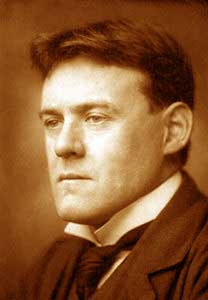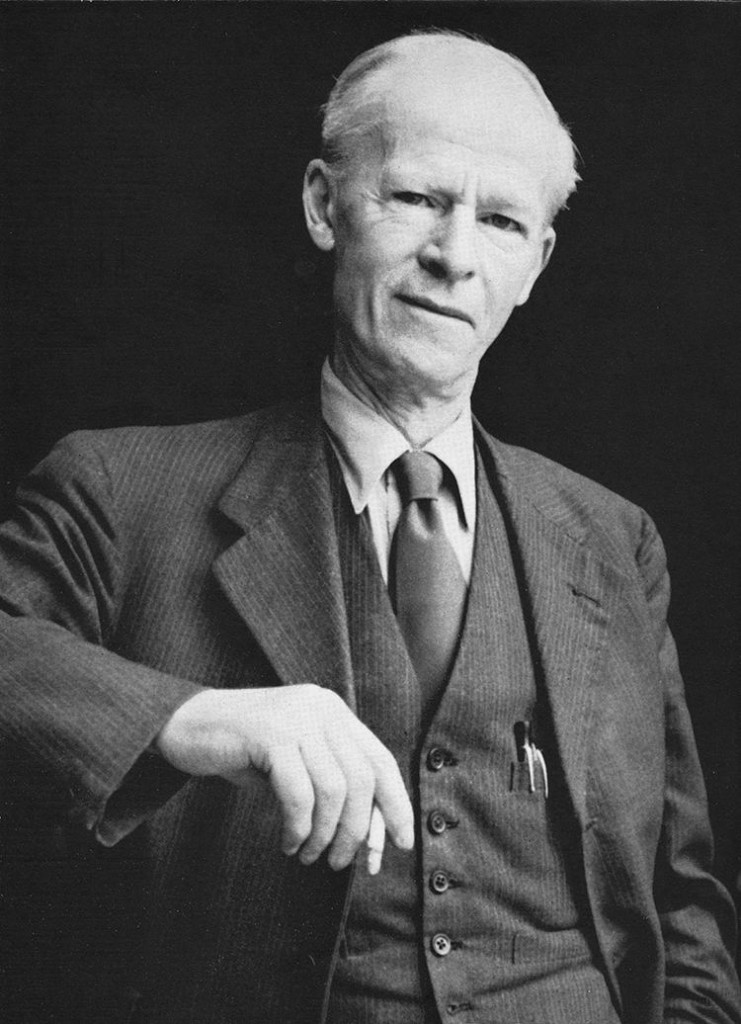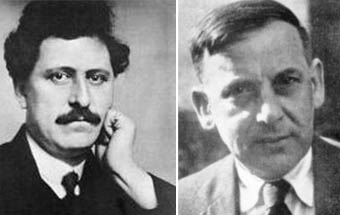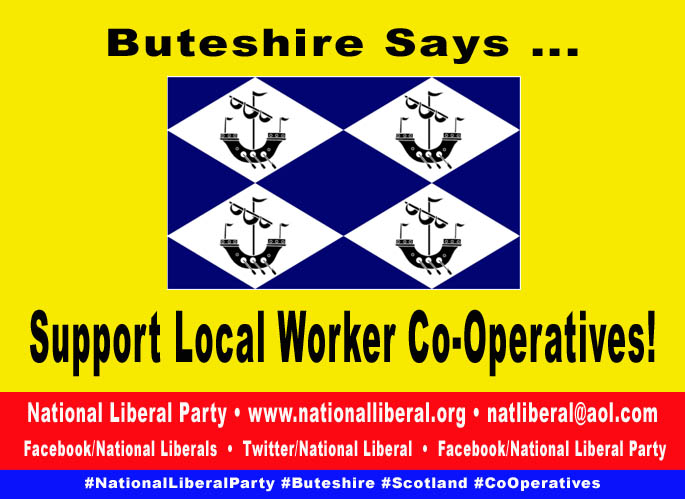National Liberal Party – Bringing Self-Determination To London!
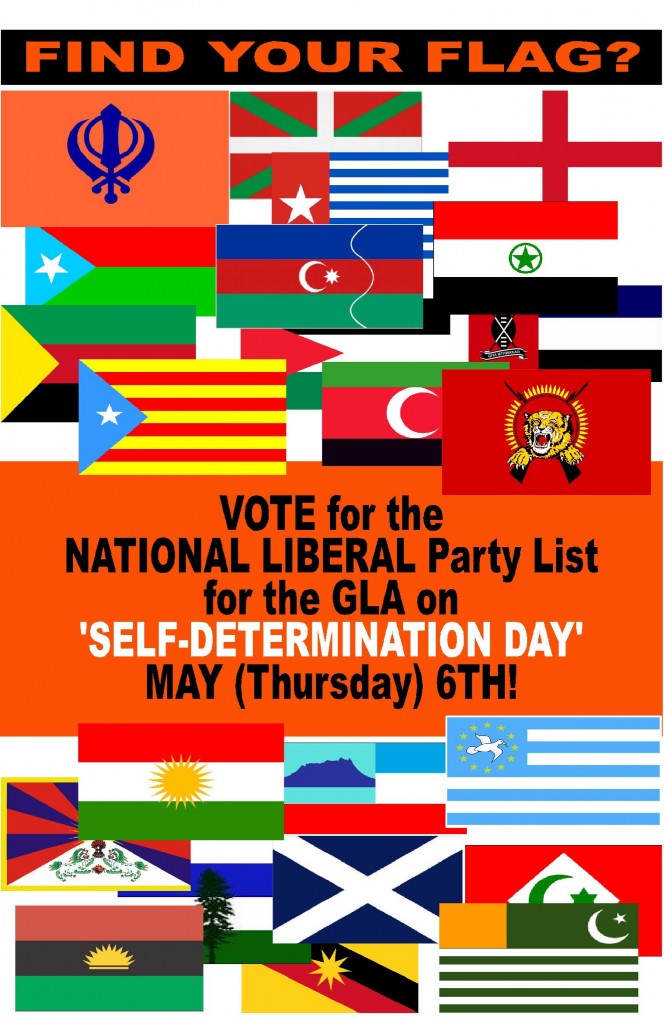 THE COLLINS ENGLISH Dictionary defines Self-Determination as ‘the right of a country to be independent, instead of being controlled by a foreign country, and to choose its own form of government.’ (1)
THE COLLINS ENGLISH Dictionary defines Self-Determination as ‘the right of a country to be independent, instead of being controlled by a foreign country, and to choose its own form of government.’ (1)
This definition effectively sums up one of the main reasons why the National Liberal Party – NLP – is standing in the forthcoming Greater London Authority (GLA) Elections. Here we’re fielding five candidates, including lead candidate Upkar Singh Rai, who’re standing on Thursday 6th May under the banner of National Liberal Party – Self-Determination For All!
Basically, the National Liberal Party is appealing to everyone in London who desires freedom – and particularly National Freedom in the form of Self-Determination – to vote for us.
As everyone knows, Greater London is home to many people from around the world. Many of these people are economic migrants – the exploited victims of capitalism. Some would be legal, others illegal. All are effectively wage slaves – and some are literally ‘employed’ as slave labour.
Others would be refugees fleeing from war in their homelands. Ironically, they’ve had to flee their homelands as they’re usually illegally occupied by US & UK troops who’re bringing ‘democracy’ & ‘freedom’ to them. (The geopolitical importance of the occupied nation invoved and the presence of valuable oil & mineral resources is obviously a mere coincidence.)
POLITICAL REPRESSION
However, many people have also come to London to escape direct political repression in their country of origin. It’s the latter group that we’re particularly interested in – especially the long-suffering Kashmiris, Sikhs & Tamils.
The NLP also wants to use the GLA elections to draw attention to the plight of the indigenous English, who’re still waiting for some form of national parliament or assembly, years after those in Scotland, Ulster & Wales were given theirs.
As we noted earlier, we’re standing under the banner of National Liberal Party – Self-Determination For All! Thus, our main aim is to use the 6th May elections as a springboard to raise awareness of the concept of Self-Determination.
We also intend to gain valuable experience in electioneering strategy & tactics. The NLP believes that such experience will be invaluable and will stand us in good stead for future elections. Much of the GLA campaign will be conducted online – although there will be some physical leafletting & canvassing. We also hope to use this campaign to learn more about building our Social Media presence. It will also help us forge links and build alliances between various different self-determinists living in London.
But we can only do so much on own. We need help – and that’s where you come in. With your help & support we can do much, much more!
SELF-DETERMINATION
Earlier we provided a definition of Self-Determination provided by the Collins English Dictionary. At root, Self-Determination is all about people choosing their own destiny without outside interference.
This means that ordinary working folks get a real say in the way our countries are run. Self-Determination enables us to make our own laws, rules and regulations. It means that we keep our traditions, customs and way of life. And it allows us the right to say how we work, who we trade with and who can come to live and work in our countries.
As we’re promoting Self-Determination via an election, it would be useful to know the definition of democracy. Here the Collins English Dictionary notes that democracy ‘is a system of government in which people choose their rulers by voting for them in elections.’ (2)
Definitions are one thing – but reality is another. As we all know, democracy is really the preserve of the rich. Just look at the costs involved in the GLA elections. (3)
There are still a few weeks left before the GLA elections. We need to raise as much money as we can during this period. The National Liberal Party has no wealthy backers. This election gives us the opportunity to represent the oppressed against the oppressor. However, as everyone knows, the oppressed tend to be poor whilst their oppressors are rich. So, what does this mean for those who desire freedom? Basically, for our voice to be really heard at the highest local level in London, Self-Determinists must get rich!
WILL YOU HELP YOUR PEOPLE?
Will you help support our brave candidates who’re fighting for Self-Determination? Our candidates are part self-financing their campaigns. They’re literally putting their money where their mouths are.
Will you help those who’re doing their upmost to fight for their people & nations? Will you help your people?
Remember, the more money we raise the more we can spend on our campaign. And the more we can spend the more likely we’ll get candidates elected to represent you at City Hall in London!
Please transfer any donations to our Bank of Scotland account. Here’s the details:
Account Name: National Liberal Party
Sort Code: 12-11-03
Account Number: 06186181
If you prefer to donate via cheque send to: National Liberal Party, PO Box 4217, Hornchurch, Essex, RM12 4PJ, England.
For obvious reasons our GLA election campaign will focus on National Self-Determination. However, the National Liberal Party believes that Self-Determination can be applied to two other areas – Political Self-Determination and Economic Self-Determination.
Self-Determination is the raison d’étre of the National Liberal Party. The following is our general statement in respect of Self-Determination:
SELF-DETERMINATION FOR ALL!
THE DISCONNECT between professional politicians and the people has never been greater. The decisions taken by the former are more often viewed as self-serving in the eyes of the latter.
Professional politicians, often labelled as so-called ‘elites’, are largely divorced from the everyday experiences of the great mass of people. Thus, we should not be surprised that they are often seen to take political positions and decisions at odds with most people.
The answer to this gulf between the present day ‘rulers’ and ‘ruled’ is found in the principle of Self-Determination; i.e. Putting decision making into the hands of the individual rather than ‘others’.
PRINCIPLE OF SELF-DETERMINATION
This principle can be applied largely in three areas; National, Political and Economic.
• National Self-Determination seeks to ensure decisions affecting the collective future of a nation are taken by ALL the people via referendum. This may be ‘External’, for example: the creation or maintenance of a nation state, or ‘Internal’ – framing/updating a constitution to reflect how a people should rule themselves. (We favour independent nations and liberal, democratic, states).
• Political Self-Determination seeks to ensure that the collective will of the people as well as the variety of political opinion is reflected in decision making. Thus, for example, we favour greater use of referendums to meet the former, and PR to reflect the latter (we favour a system close to the Swiss model of Direct Democracy).
• Economic Self-Determination seeks to distribute ownership as widely as possible and as close to the individual as practical by favouring home ownership, self-employment, small businesses, cooperatives and employee shareholdings. (We believe that ownership is the key to economic and social health: where workers obtain a just reward for their labours and gain a feeling of well-being through their having a genuine personal stake in society).
The above principles underpin many National Liberal policies but others are rooted in common sense and usually aim to strike a balance between conflicting opinions, as befits a centrist party.
(1) https://www.collinsdictionary.com/dictionary/english/self-determination
(2) https://www.collinsdictionary.com/dictionary/english/democracy
(3) https://www.londonelects.org.uk/im-candidate/campaign-spending-and-expenses
Date: March 26, 2021
Categories: Articles
































